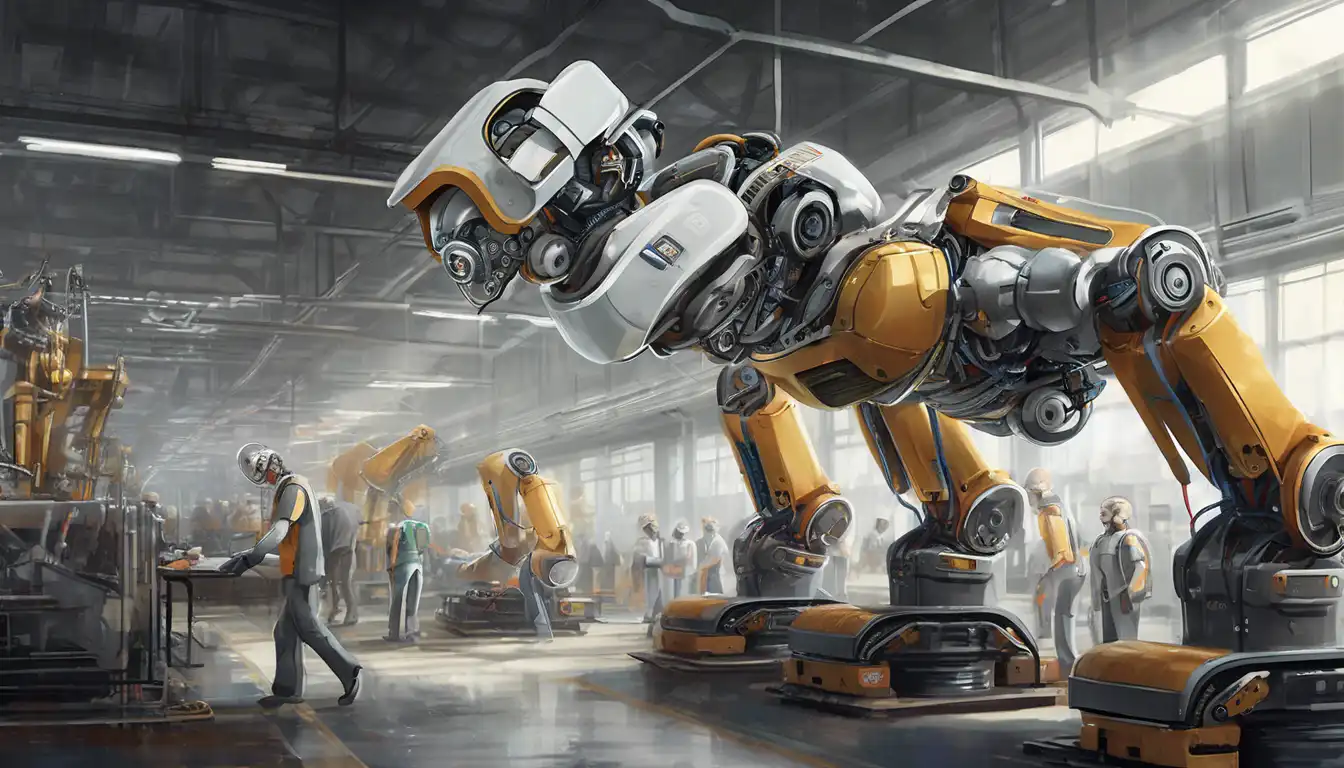The Revolutionary Impact of Robotics on Modern Manufacturing
In the ever-evolving landscape of manufacturing, robotics has emerged as a game-changer, revolutionizing how products are designed, produced, and delivered. This transformation is not just about automating repetitive tasks but redefining efficiency, precision, and scalability in manufacturing processes.
Enhanced Efficiency and Productivity
Robotic systems have significantly increased production rates by performing tasks faster and more accurately than human workers. Unlike humans, robots can work around the clock without fatigue, leading to uninterrupted production lines and higher output. This leap in productivity is a cornerstone of modern manufacturing, enabling businesses to meet growing demands efficiently.
Precision and Quality Control
One of the most notable advantages of robotics in manufacturing is the unparalleled precision they offer. Robots are capable of executing tasks with microscopic accuracy, reducing the margin of error to near zero. This precision ensures consistent quality in every product, minimizing waste and rework. Furthermore, integrated sensors and AI technologies allow for real-time quality control, ensuring that any deviations are promptly corrected.
Scalability and Flexibility
Robotics introduces an unprecedented level of scalability and flexibility to manufacturing. With programmable robots, manufacturers can quickly adapt to changes in product design or demand without significant downtime or retooling costs. This agility is crucial in today's fast-paced market, where consumer preferences and trends can shift rapidly.
Safety and Workplace Evolution
By taking over dangerous or physically demanding tasks, robots have made manufacturing environments safer for human workers. This shift not only reduces workplace injuries but also allows employees to focus on more skilled and creative aspects of production. The collaboration between humans and robots, known as cobotics, is paving the way for a new era in manufacturing where safety and innovation go hand in hand.
Future Prospects
The integration of robotics into manufacturing is just the beginning. With advancements in AI, machine learning, and IoT, the potential for further transformation is boundless. These technologies promise to make manufacturing even more efficient, sustainable, and adaptable to future challenges.
As we look ahead, it's clear that robotics will continue to play a pivotal role in shaping the future of manufacturing. By embracing these innovations, manufacturers can stay competitive in a rapidly changing world, delivering high-quality products with unmatched efficiency and precision.
For more insights into how technology is transforming industries, explore our articles on technology trends and the future of manufacturing.
